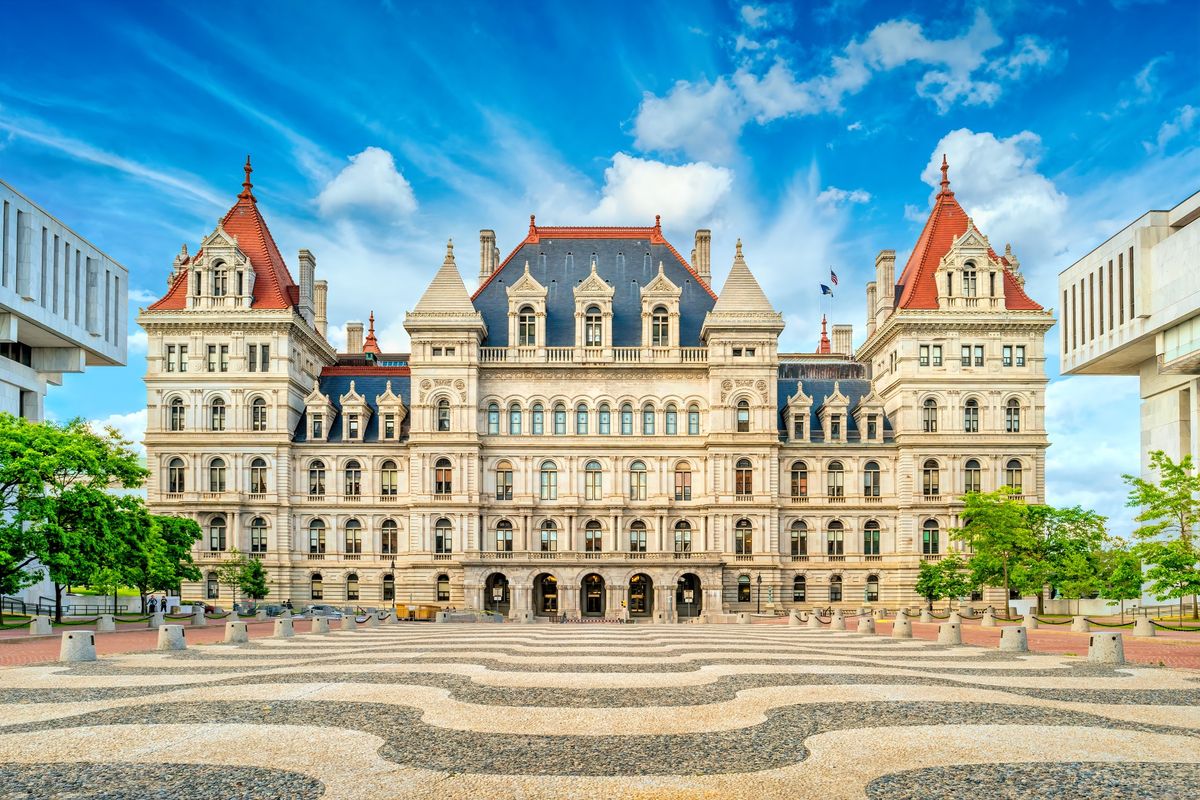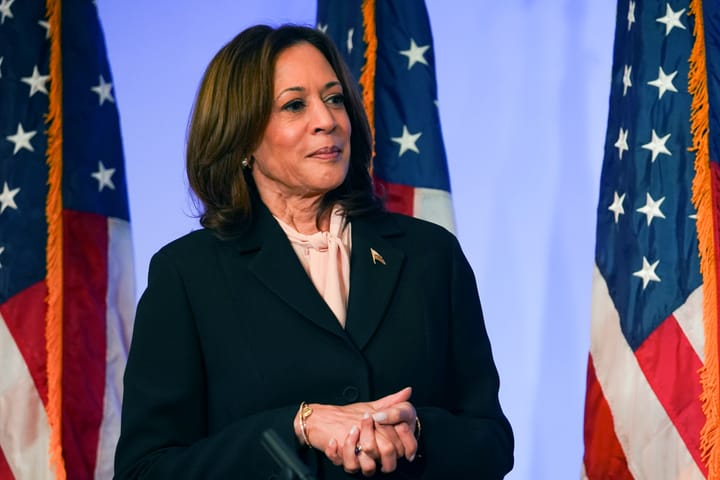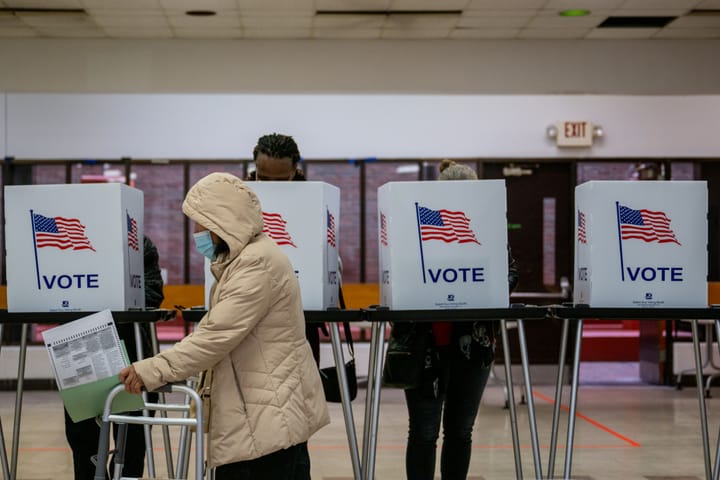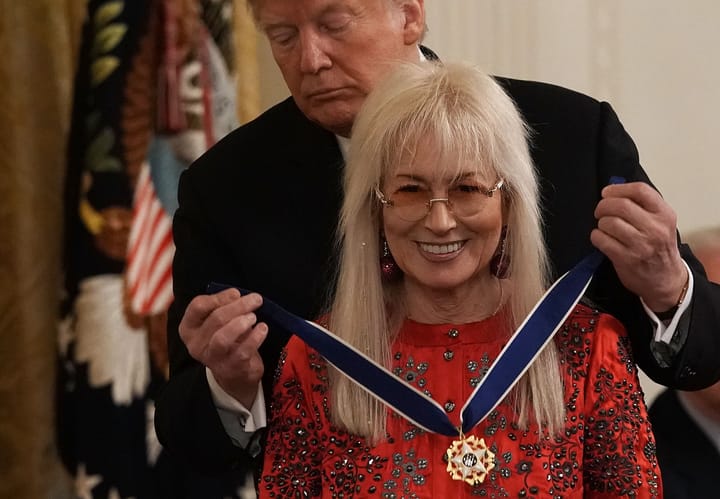New York Groups Call on Lawmakers to Fully Fund Small-Donor Matching Program
Advocates for a groundbreaking New York public campaign financing program await word of its funding level in the "Big Ugly" budget bill.

After another New York election cycle dominated by large donors, advocates for public campaign financing in the state are awaiting word regarding whether a matching funds system that was signed into law in 2020 will be fully funded in the mammoth state budget that is currently being negotiated.
The due date for an agreement on the New York State budget—this year clocking in at $227 billion—was April 1, but as frequently happens in Albany, it was pushed back by the legislature to April 10. Budget negotiations are ongoing between Gov. Kathy Hochul (D) and the Democratic heads of the state legislature, centering around bail reform, housing policies, and other issues.
Last month, more than 70 organizations in New York sent a letter to Senate Majority Leader Andrea Stewart-Cousins and Assembly Speaker Carl Heastie urging state lawmakers to follow through and provide adequate funding for the New York State Public Campaign Finance Program (PCFP), which launched in November for the 2024 cycle and beyond.
The PCFP aims to democratize campaign funding in New York races by offering participating candidates public matching funds at a ratio of six-to-one or greater for donations of up to $250 they raise from people who live in the district they seek to represent. Similar programs that offer public campaign financing, like New York City’s longstanding system, have been shown to increase diversity in the pool of campaign donors and curb candidates’ dependence on wealthy donors. Set rolling by the legislature in a law passed in 2020, the voluntary statewide program will be offered to state legislative candidates in the current election cycle and statewide candidates, such as governor and state attorney general, in the 2026 elections.
Earlier this year, rumors circulated in Albany that the PCFP might be delayed by lawmakers, but last month, the Assembly, Senate, and Hochul all endorsed funding the program at the same level in their budget proposals, $39.5 million, suggesting that they were all planning to move forward with the plan. The budget proposals each suggest providing $25 million for matching funds and $14.5 million for administration of the program.
In New York’s drawn-out budget process, after the governor and legislative bodies release their budget proposals, legislative leaders and the governor privately negotiate dollar amounts for a proposal that they can all agree on, then the final budget bill is revised by the governor’s office and sent to the legislature for a vote. While advocates for the PCFP await the budget details to ensure the program has the funding support to remain on its timeline, the coalition Fair Elections for New York this week launched a call-in campaign to Stewart-Cousins, Heastie, and other lawmakers to petition for the PCFP to be fully funded and on schedule. The coalition’s partner organizations include the law and policy institute Brennan Center for Justice, community organizing group New York Communities for Change, and the grassroots immigrant-led Make the Road New York, among others. At the end of March, coalition members rallied in Albany to support robust funding for the PCFP’s rollout in state races.
“New Yorkers have waited over 20 years for a public campaign finance system, and we can’t wait anymore,” said Jessica Wisneski, co-executive director of coalition member Citizen Action of NY. “The legislature and the government publicly promised to fund this program and must honor that commitment. The program is in flight, candidates are already signing up, and this program must be available without delay ahead of the 2024 election cycle, as the law demands.”
A February poll released by the progressive advocacy group Stand Up America and Data for Progress found that a large majority of voters support the new statewide PCFP running as designed. Of New York voters, 62% support providing sufficient funding for the optional PCFP, including a majority of voters on both sides of the aisle in seven regions across the state. After more than a decade of corruption convictions emanating from Albany’s legislative and government leaders, 70% of New York voters told the poll they wanted their elected officials to counter the influence of wealthy donors in politics.
“This poll says it loud and clear: New York’s voters support the public financing program, and they want Albany to fund it adequately in this budget,” said Joanna Zdanys, senior counsel in the Brennan Center’s Democracy Program, in a statement. “Whether they’re upstate or downstate, Democrat or Republican, New Yorkers are concerned about the influence of the wealthiest over state politics, and they want small donor public financing to have a chance to succeed.”
New York’s PCFP will be the first state system of matching funds implemented since the 2010 Citizens United ruling by the U.S. Supreme Court allowed outside groups to raise and spend unlimited amounts influencing voters in elections—groups often closely tied to politicians, though skirting the line of direct coordination. With money flooding into state elections nationwide, the 2022 midterms saw state political committees hit a record $7.4 billion in fundraising, according to OpenSecrets, making up part of the most expensive midterms cycle ever. Data from OpenSecrets and the nonpartisan Brennan Center shows that 21 megadonor families gave more in the 2022 midterms, $783 million in total, than 3.7 million small donors did.
In New York’s most recent elections, the pattern held true of large donors dominating fundraising hauls: the 200 biggest donors gave nearly $16 million to candidates, more than the combined donations of 206,000 people giving $250 or under, the OpenSecrets and Brennan Center analysis found.
However, this donation pattern to legislative candidates stands to be transformed by New York’s PCFP, the analysis found: under the matching system, the share of campaign funding coming from small donors could rise from 11% to as much as 67%, an increase entirely composed of donors who live in a candidate’s district.
“New Yorkers have long been frustrated by the deplorable condition of our state’s campaign finance system and the outsized power of wealthy interests in Albany,” said Laura Ladd Bierman, executive director of the League of Women Voters of New York State, one of the coalition members calling on Gov. Hochul and legislative leaders to fund the PCFP and not delay its implementation. “The task now before the legislature is to finish this historic improvement to our broken campaign finance system, a system which has for far too long undermined democracy and sown public distrust in government. Elected officials should be beholden to their constituents, not their large donors.”
To participate in the New York PCFP, registered candidates must first qualify by reaching a threshold of small donations—for Senate candidates, $12,000 from at least 150 district residents, and for Assembly candidates, $6,000 from at least 75 district residents. In addition, candidates must agree to limit their personal campaign spending to no more than three times the individual contribution limit for their race—for example, $5,000 for a state Senate primary election—and to submit regular disclosure reports, with the PCFP’s data on matching funds to be displayed publicly online in a searchable database.
A unique feature of New York’s PCFP is its greater incentive for smaller contributions: for state legislative offices, amounts up to $50 from residents of the Senate or Assembly district will be matched 12-to-1, with the next $100 matched 9-to-1, and the next $100 matched 8-to-1. For statewide offices, the match will be 6-to-1. A $100 contribution to a New York Senate hopeful from a voter in their district would receive $1,050 in public matching funds for a total of $1,150 raised. Contributions from non-individuals like PACs and corporations are not eligible to be matched, nor are in-kind contributions or contributions from campaign vendors, registered lobbyists, or individuals outside of the district, among other rules.
Among other requirements to take part in the match, statewide candidates in the PCFP will have to participate in at least one public debate before funding is released. Candidates will be subject to caps in matching funds that can be awarded for their race—for example, $375,000 for a state Senate primary and the same amount in the general election.
Under the PCFP, participating candidates are allowed to raise large donations outside of the matching offer as well, subject to contribution limits for the office sought. In New York’s 2020 law, individual contribution limits were lowered and will be the same for all candidates, those participating in the PCFP and not—for example, $5,000 for a state Senate primary and the same amount for a general. Participating candidates and treasurers will be required to attend a mandatory PCFP training and will have their books examined in a post-election audit.
In New York City, the widely-used public campaign financing system established in 1988 was strengthened by 80% of voters to an eight-to-one match in a 2018 ballot initiative. In its most recent cycle, the program encouraged record amounts of small donations and saw a new high in use by candidates. The New York City Campaign Finance Board said that more than 93% of individual contributions to city candidates in the most recent election cycle were less than $250—which a Sludge analysis found is nearly the inverse of state campaigns, where between 2016 and 2019 only 9% of funding came from small donors. Record numbers of women and people of color were elected to the New York City Council in 2021, many of them opting-in to the small-donor matching program to finance their campaigns with small donations from people in their communities.
In the 2024 cycle, when all 213 seats in the state legislature are up for election, eligible matching donations are scheduled to begin to be reviewed soon after petitions are filed. In its letter, the Fair Elections coalition says candidates have already begun opting in to the program, which will be overseen by Chair Barbara Lifton, a former New York state assemblywoman for nearly two decades.
“New York’s democracy has taken a huge step forward through the voting and campaign finance reforms passed by the state Senate and Assembly,” Tom Speaker, policy analyst at the nonprofit Reinvent Albany, a group long active in proposals for a statewide public campaign financing system. “We urge Majority Leader Stewart-Cousins and Speaker Heastie to stay strong and make sure the state’s new public campaign finance program stays fully funded in the budget.”




Comments ()